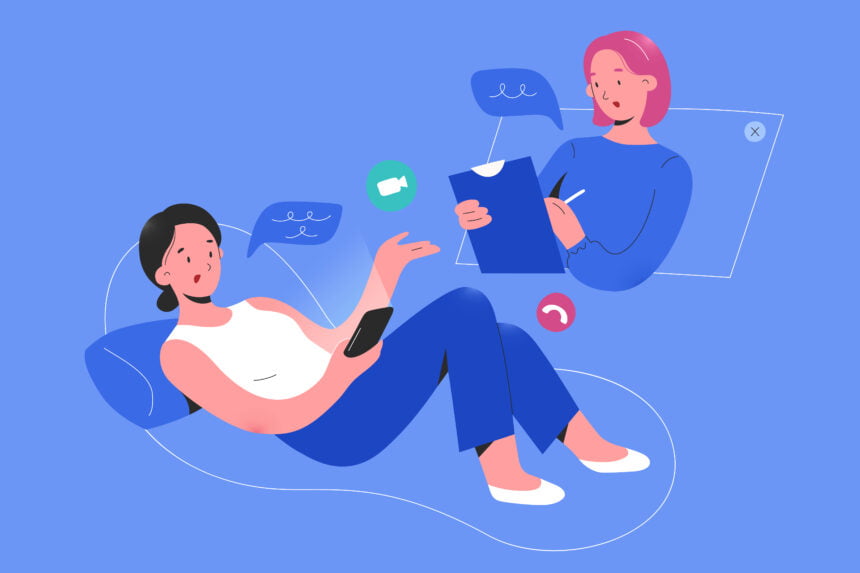Before the COVID-19 pandemic caused havoc around the world and disrupted the way professionals worked, digital technology such as video conferencing applications were already in the workplace. But numerous professions and industries were still resisting and wouldn’t allow their employees to work from anywhere. They still required workers to report to the office. Yet sometimes, nature has a way of dismantling social barriers.
Psychiatrists are among those professionals who’ve learned to adapt to the pandemic by doing their therapy sessions online or thru video conferencing apps. Now, a lot of them are doing their work online. If you’re looking for a way to consult a psychiatrist but you don’t want to travel outside of your home, you can inquire with Prairie Health and other similar sites.
Dramatic Shift to Telehealth
The ongoing COVID-19 pandemic has caused a dramatic shift in the way psychiatrists hold therapy sessions with their patients. Before the pandemic happened, there were already some limited forms of psychiatry done thru telehealth. But this was mainly limited to short phone conversations between patients and their psychiatrists. It was often done when a patient has a quick question or the psychiatrist wanted to check on the patient. The COVID-19 pandemic hastened the shift to telepsychiatry.
When the lockdowns and shelter-in-place rules were imposed, many psychiatrists and other mental health professionals had no choice but to quickly transition to telepsychiatry. Almost overnight, psychiatrists had to find ways to continue serving their patients. They’re able to transition well to telepsychiatry when the videoconferencing apps became downloadable by the general public, some with free individual accounts. In a real way, the pandemic made telepsychiatry more available and acceptable.
Psychiatrists And Patients Made Adjustments
A structured survey found out that relatively few psychiatrists used telemedicine before the pandemic. They had to refrain from doing it because of barriers such as regulations on privacy and confidentiality, worries that they might not be reimbursed, and a prevailing resistance to change among practitioners.
When the COVID-19 illnesses started piling up, clinicians were impelled to find ways to go on servicing their patients without having to go out. They had to refrain from going out to avoid being infected with the virus. It was fortunate that federal and state governments and agencies, as well as private payers made adjustments, too.
For example, Medicare and Medicaid services announced that they’re going to reimburse telemedicine services rendered online or thru virtual platforms. This would also cover visits done in both urban centers and rural areas. This was a big boost to assure clinicians they’d be reimbursed for their services.
Another welcome change was when the US Department of Health and Human Services (HHS) waived penalties and allowed clinicians to use videoconferencing technology, even though some of these may not be compliant with the HIPAA’s minimum standards on protection of privacy.
Positive Feedback and Responses
Many of the psychiatrists and clinicians who were surveyed said that their patients gave positive feedback about doing the visits thru video or phone. They also said that their patients were glad they continued to make their services available even during the pandemic.
Some clinicians also shared that telepsychiatry brought about both positive and negative effects to their practice. They said that doing video visits gave them a visual picture of the home environment of their patients. It has also made it easier to provide access and care for their patients who couldn’t travel out of their homes as much such as persons with disabilities (PWDs).
Managing Negative Effects and Challenges
However, some clinicians also shared the negative effects. They noted that they couldn’t get many nonverbal cues from the video visits. They’re limited to what they could see from their screens.
There were also patients who had privacy concerns, especially those that didn’t have secluded nooks inside their homes where they wouldn’t be overheard when they receive the video visits. Other clinicians said either they or the patients were sometimes distracted by noise or other people in the household. Another disadvantage of telepsychiatry is they couldn’t check vital signs or do physical tests.
Clinicians shared that they’ve also learned to identify patients who might have difficulties with telepsychiatry. There are patients who might not be too familiar with technology or are already quite advanced in age. Often, it’d be necessary to ask someone living with them to help set up the video visit. These same people might also have to stay during the whole duration of the call to help if the call gets cut or interrupted.
Another group that needs special assistance are those who don’t have suitable internet connectivity for the call and those who might not have their computers or smartphones such as patients living in remote places or rural areas.
Face To Face No Longer Required
Now that both psychiatrists and patients have come to accept doing their mental health therapy sessions thru video visits, clinicians can now have the option not to hold face-to-face therapy sessions. There are still those who insist on going back to in-person sessions, but most of them also said they’d be holding video visits for those who’d be better served by staying where they are. With that, psychiatrists are now moving their work online.








